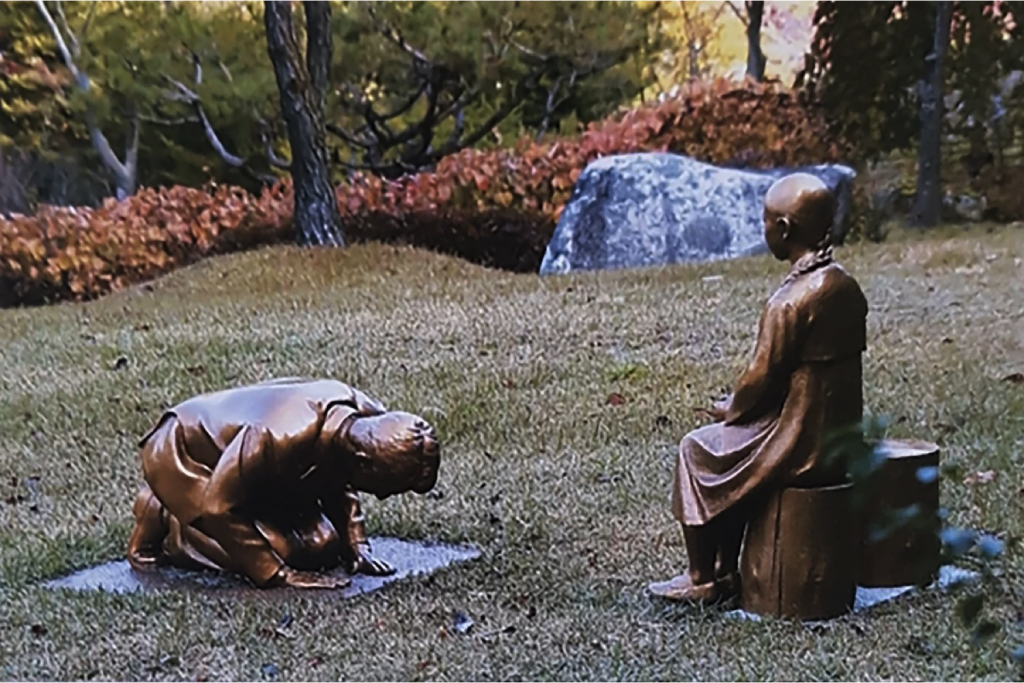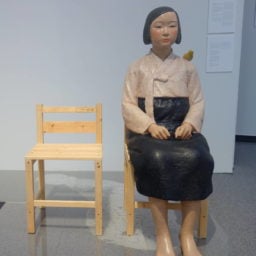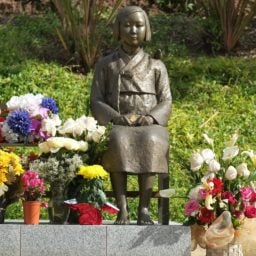A new sculpture in a privately owned South Korean botanical garden is drawing ire in Japan for its alleged depiction of Prime Minster Shinzo Abe kneeling in apology before a Korean “comfort woman.”
Thousands of so-called “comfort women” were sold and forced into prostitution by the Japanese Imperial Army during World War II, with most of the women coming from occupied countries like Korea, China, and the Philippines. In 2015, Abe issued an apology for Japan’s actions and pledged to create a fund supporting victims of wartime abuse.
After news of the male figure’s resemblance to the prime minister reached Japan, Abe’s chief cabinet secretary, Yoshihide Suga, said that if the work does depict Abe, “there would be a decisive impact on Japan-Korea relations,” according to Reuters.
The work, titled Eternal Atonement, was commissioned by the garden’s owner, Kim Chang-ryeol, who was surprised at the level of outrage the works drew from Tokyo.
“Can the government take measures on art pieces created by private citizens?” Kim asked Vice. “I see anti-Korea books in Japanese bookstores as just individuals’ works.”
“The man could be Abe, and also couldn’t be Abe,” Kim told the Associated Press, adding: “the man represents anyone in a position of responsibility who could sincerely apologize to the victims of sexual slavery, now or in the future.”
Kim has now cancelled the public unveiling of the work, initially set to take place on August 10, although he insists that the sculptures will remain in place.
Controversies over artistic representations of “comfort women” have erupted in both countries in recent years.
The 2019 edition of the Aichi Triennale in Japan caused a stir when its curators—who organized the show around themes of censorship—removed a work by Kim Seo-kyung and Kim Eun-sung depicting a “comfort woman,” prompting other high-profile artists to pull their own works in protest.
After the exhibition closed early, Spanish collector Taxto Benet acquired the work for his personal museum, which is dedicated to contemporary art that has been censored around the world.








